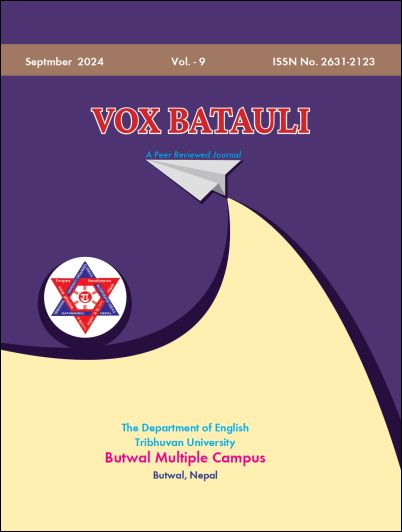Sources of Teachers’ Occupational Stress and Effects on their Self-Efficacy
DOI:
https://doi.org/10.3126/vb.v9i01.70396Keywords:
Occupational Stress, Effects, Self-Efficacy, Job Satisfaction, Teachers, PerformanceAbstract
The themes in this narrative inquiry represent the sources of occupational stress and further investigate their effects on teachers' self-efficacy. Poor occupational support, low salary and job insecurity, and the role of teachers are the major sources of occupational stress. Furthermore, these stressors have negative effects on the teachers’ self-efficacy on students’ motivation and engagement, teacher preparedness and planning, and their emotional well-being. This study employed a semi-structured interview with five EFL teachers in the Rupandehi district to explore their lived experiences. Participants were selected purposively from private schools, as existing research indicated teachers in private schools faced more occupational stress than public school teachers. The findings showed that teachers’ occupational stress negatively affects their self-efficacy and professional well-being. Additionally, it exhibited that a positive organizational climate, a supportive environment, and strong relationships with students, parents, and colleagues can significantly boost a teacher's professional well-being and self-efficacy. This research recommends school administrators and stakeholders ensure that teachers have access to adequate resources and support and that their working conditions are improved to maximize teacher effectiveness and well-being.




